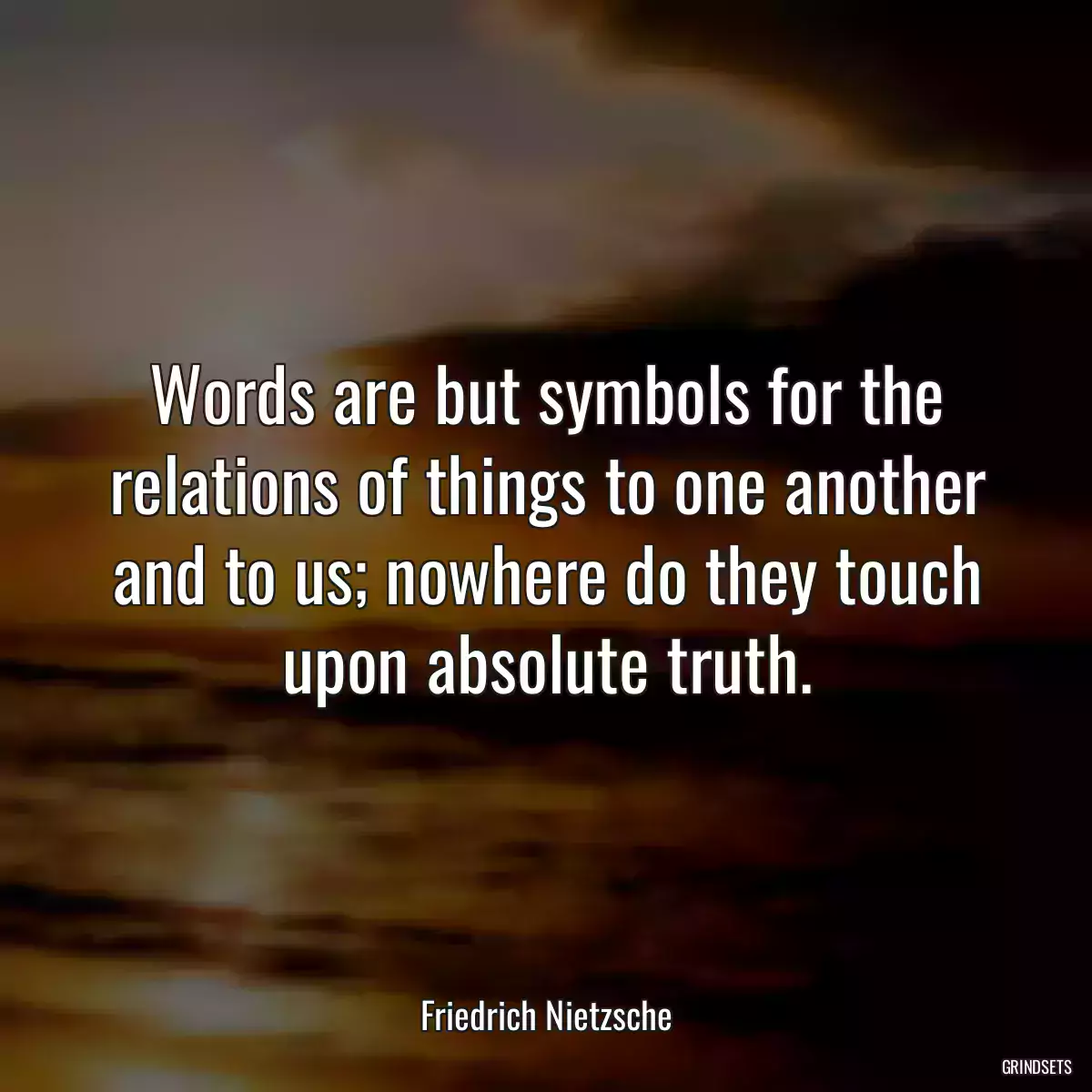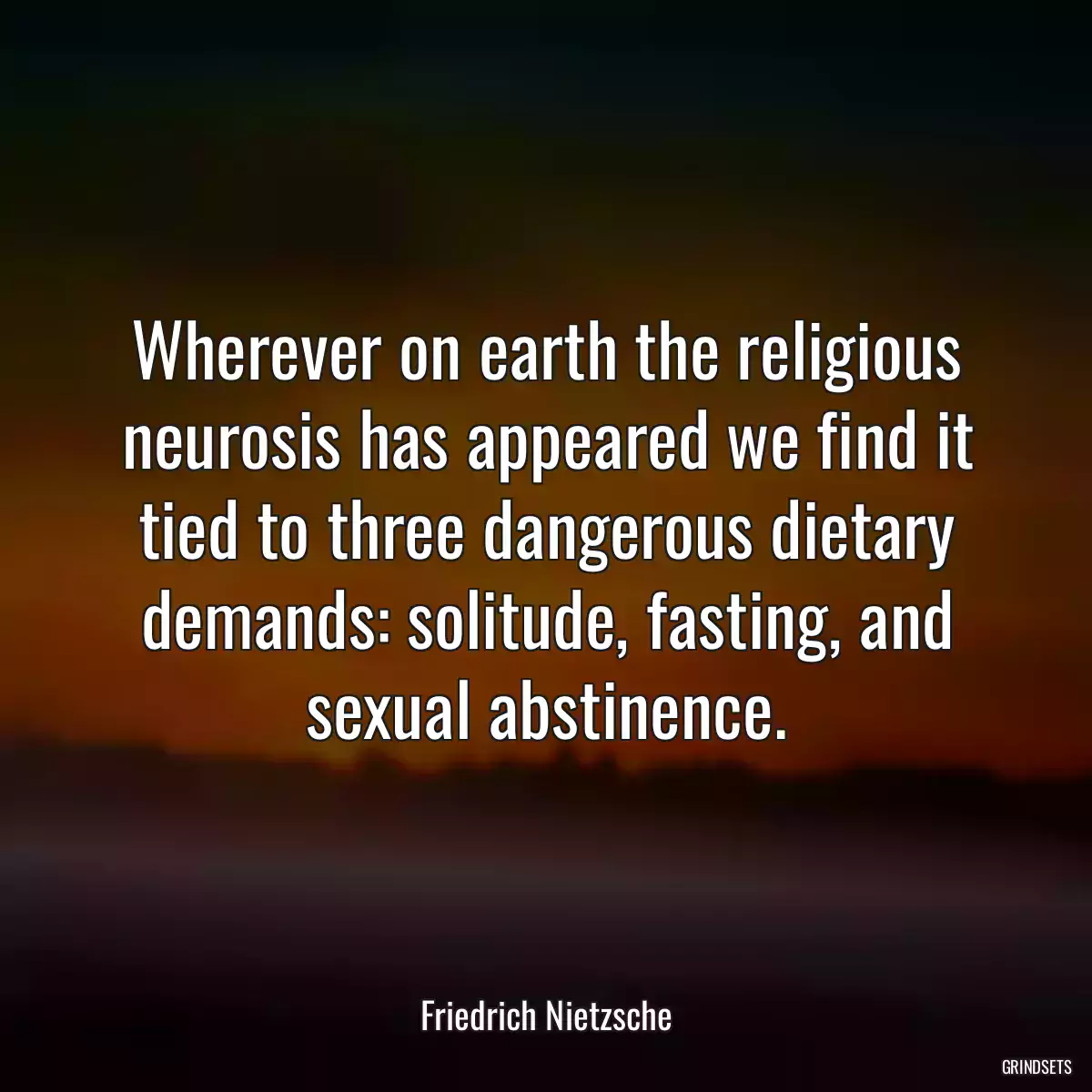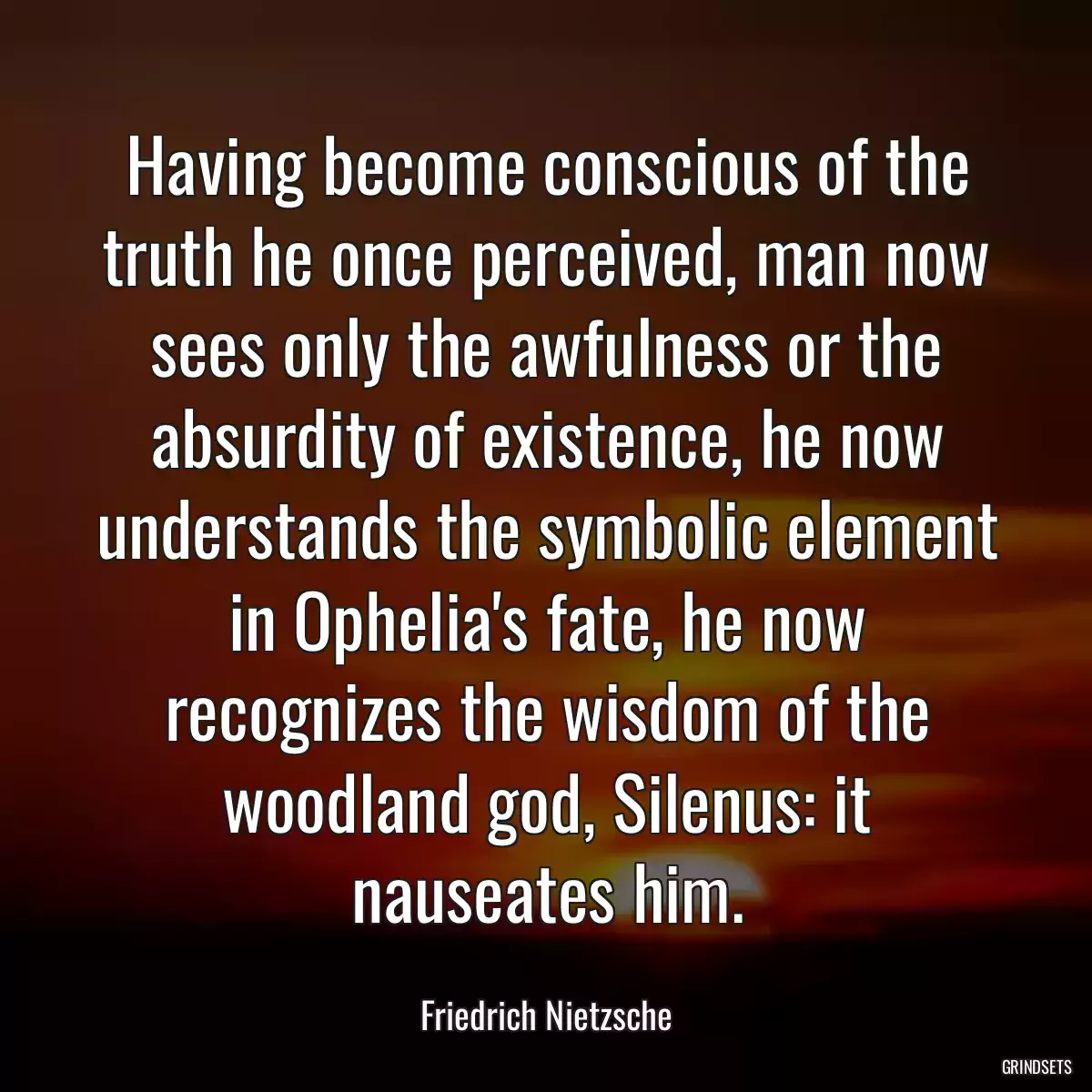
Quotes Friedrich Nietzsche - page 6
Find dozens of Friedrich Nietzsche with images to copy and share.

There is nothing more necessary than truth, and in comparison with it everything else has only secondary value. This absolute will to truth: what is it? Is it the will to not allow ourselves to be deceived? Is it the will not to deceive? One does not want to be deceived, under the supposition that it is injurious, dangerous, or fatal to be deceived.
One does not want to be deceived, under the supposition that it is injurious, dangerous, or fatal to be deceived.
Words are but symbols for the relations of things to one another and to us; nowhere do they touch upon absolute truth... Through words and concepts we shall never reach beyond the wall off relations, to some sort of fabulous primal ground of things.
You may also like
Logic, too, also rests on assumptions that do not correspond to anything in the real world, e.g., on the assumption that there areequal things, that the same thing is identical at different points in time: but this science arose as a result of the opposite belief (that such things actually exist in the real world). And it is the same with mathematics, which would certainly never have arisen if it had been understood from the beginning that there is no such thing in nature as a perfectly straight line, a true circle, and absolute measure.
Morality is neither rational nor absolute nor natural. World has known many moral systems, each of which advances claims universality; all moral systems are therefore particular, serving a specific purpose for their propagators or creators, and enforcing a certain regime that disciplines human beings for social life by narrowing our perspectives and limiting our horizons.
Objection, evasion, joyous distrust, and love of irony are signs of health; everything absolute belongs to pathology.
Mathematics would certainly have not come into existence if one had known from the beginning that there was in nature no exactly straight line, no actual circle, no absolute magnitude.
Metaphysical world.- It is true, there could be a metaphysical world; the absolute possibility of it is hardly to be disputed. We behold all things through the human head and cannot cut off this head; while the question nonetheless remains what of the world would still be there if one had cut it off.

The more abstract the truth you wish to teach, the more must you allure the senses to it.
Philosophers are not honest enough in their work, although they make a lot of virtuous noise when the problem of truthfulness is touched even remotely. They all pose as if they had discovered and reached their real opinions through the self-development of a cold, pure, divinely unconcerned dialectic...; while at bottom it is an assumption, a hunch, indeed a kind of "inspiration" most often a desire of the heart that has been filtered and made abstract that they defend with reasons they have sought after the fact.
There are ages in which the rational man and the intuitive man stand side by side, the one in fear of intuition, the other with scorn for abstraction. The latter is just as irrational as the former is inartistic.
In the consciousness of the truth he has perceived, man now sees everywhere only the awfulness or the absurdity of existence and loathing seizes him.
As regards the celebrated struggle for life, it seems to me for the present to have been rather asserted than proved. It does occur, but as the exception; the general aspect of life is not hunger and distress, but rather wealth, luxury, even absurd prodigality -- where there is a struggle it is a struggle for power.
. . . an absurd problem came to the surface: 'How COULD God permit that (crucifixion of Jesus Christ)!' . . . the deranged reason of the little community found quite a frightfully absurd answer: God gave his Son for forgiveness, as a SACRIFICE . . . The SACRIFICE FOR GUILT, and just in its most repugnant and barbarous form - the sacrifice of the innocent for the sins of the guilty! What horrifying heathenism!
To demand of strength that it should not express itself as strength, that it should not be a desire to overcome, a desire to throw down, a desire to become master, a thirst for enemies and resistances and triumphs, is just as absurd as to demand of weakness that it should express itself as strength.
The irrationality of a thing is no argument against its existence, rather a condition of it.
You may also like

... art approaches as a saving sorceress, expert at healing. She alone knows how to turn these nauseous thoughts about the horror or absurdity of existence into notions with which one can live.